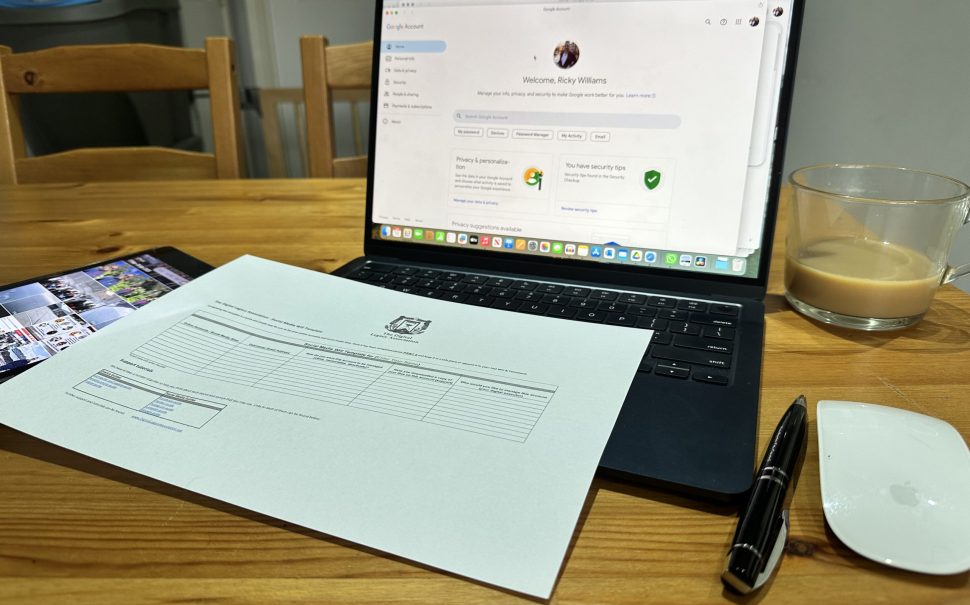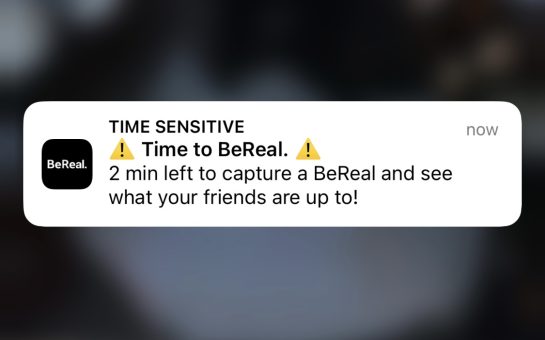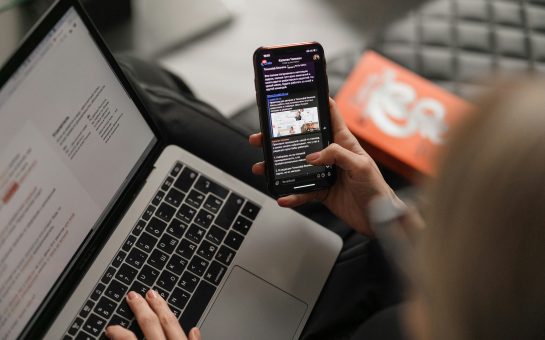I have 3128 photos on my phone, 1,700 videos on my iCloud, 18 years of Facebook memories, and 15 gigabytes of work on my Google Drive.
But, I have no plan in place for any of it when I die.
It’s all part of my Digital legacy and most of us have one. They include social media accounts, online conversations, photos, videos, gaming profiles, storage, websites and blogs. Plus, any online monetary assets you own.
Meta recently announced that Facebook will delete users’ live videos after 30 days, forcing those who want to keep them to act and download them to a device or transfer them to an online drive.
James Norris, founder of The Digital Legacy Association and My Wishes, said: “This is one of many examples as to why it is increasingly important to backup, save and share content saved on third party platforms rather than relying on them for long term storage and access both in life and death.”
Norris explained that people go through a double grief when having to deal with a loved one’s online existence, especially if they’d never thought about it before. We could make it easier on them and know that our chosen message, should you choose to create one, is there for those we love the most.
Norris is like a one man crusade to ensure none of us have any digital regrets. He has also advised people who are in palliative or end of life care on life remembering actions to ensure their digital wishes are carried out.
In the UK alone there were 54.8 million active social media users as of February 2025, according to Statista, which it says represents 79 per cent of the population. It’s almost 17 per cent higher than the global average.
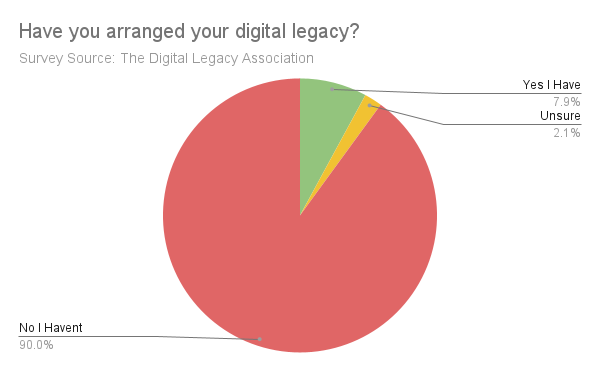
According to data from the Digital Legacy Association’s Digital Death Survey, more than 89 per cent of people haven’t made plans, or may not realise the value, of their own digital legacy with almost 90% of people surveyed having not made plans, as seen here.
Moreover, a large number of people answering the survey trusted at least one other person with their password.
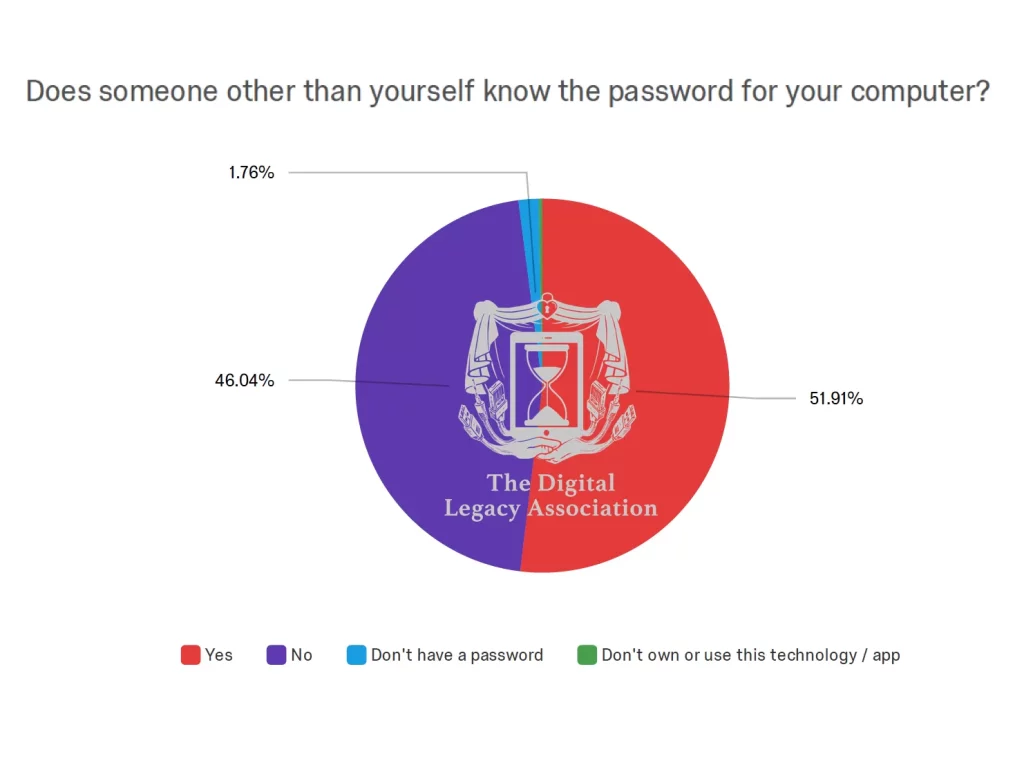
Sharing passwords with a legacy contact is not recommended and it reinforces that provisions should be in place instead. Anyone with your password has a good chance of continuing your existence without you.
The Association, The Law Society and digital platforms themselves recommend action. We can all take simple steps and they are provided by the DLA, on their website, in templates and advice pages including tutorials.
The ‘Social Media Will’ is a template, available from the site, that is downloadable for you to keep in a secure place. This is where your information should be stored for you digital executor to access. It’s not legally binding but it can however be provided as evidence for platforms and service providers should there be issues in the future.
Facebook has made it easy to be able to choose what to do with your digital assets. Owner, Meta, made it simple to choose for your profile to be memorialised or exist as was. Anyone with the relevant paperwork, like a family member, can close and memorialise your profile unless you specify who your legacy contact should be.
When you choose a contact, they can accept friends who may be late requests, who you may wish to be part of your memorialised profile and share in tributes and memories. It’s also important to know that they cannot create new posts or read messages.
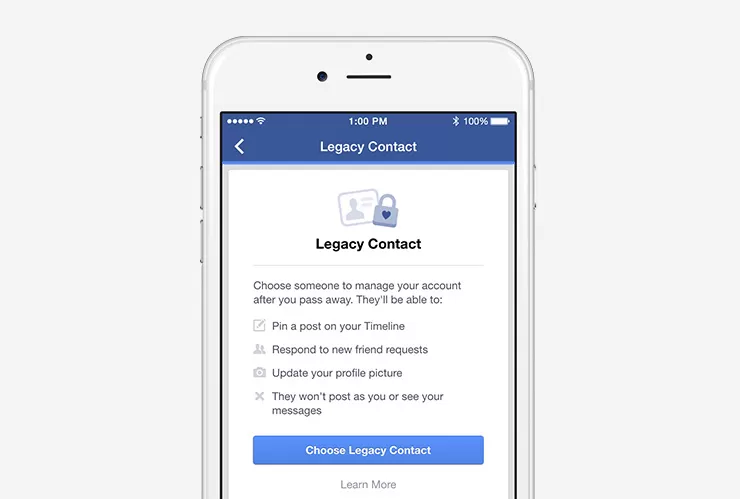
Google, Apple and most major platforms offer legacy options to carry out on the platform itself but should be done in addition to the Social Media Will.
Mywishes is a further service that is free of charge and can be used to give a fuller collection of wishes, directives and messages for loved ones.
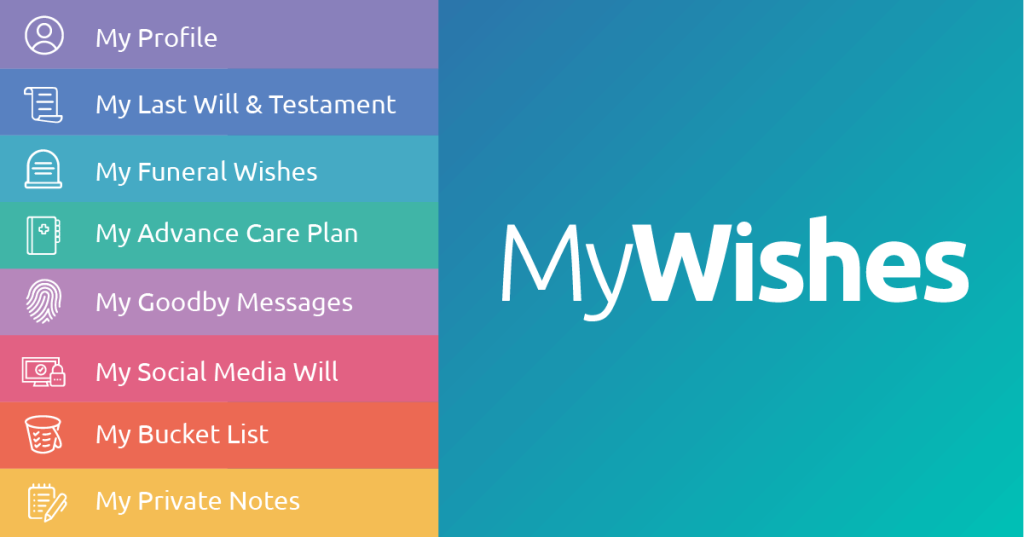
Formerly known as Dead Social, the platform allows you to curate your own end of life memories. Formed over ten years ago it now hosts writing of wills, free of charge also and they are legally binding. That’s not to say platforms can’t or won’t dispute wishes which is why it’s best to be thorough.
This allows you to record messages for people, and choose your own set of photos to be remembered by rather than family members sorting through thousands of screenshots and pics of offers you’ve seen at Lidl.
As Mywishes focuses on memories it doesn’t have other algorithmic intentions like most social media platforms and it’s not for profit so its future goal is to simply remain free and online for us all to use.
Whichever platforms you choose to arrange your legacy contact for, you’ll need to ensure a paper version of your social media will is somewhere safe in paper form and once you’ve chosen your executor, or executors.
They and whoever you want to know your final wishes should be informed of its location. One of the safest options is to give it to the HM Courts and Tribunals Service for a £23 charge to ensure your Social Media will, and Your Last Will and Testament isn’t lost.
You can find more information and tutorials on platforms and devices at Thedigitallegacyssocitaion.org
Image Credits:
Password Graph + My Wishes Image – The Digital Legacy Association, James Norris
Featured Image + all other media = Ricky Williams.
